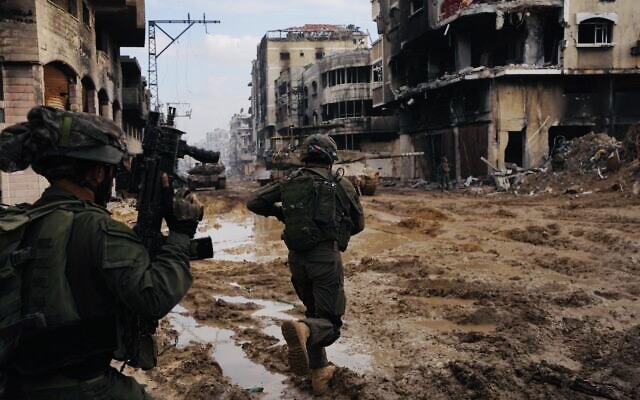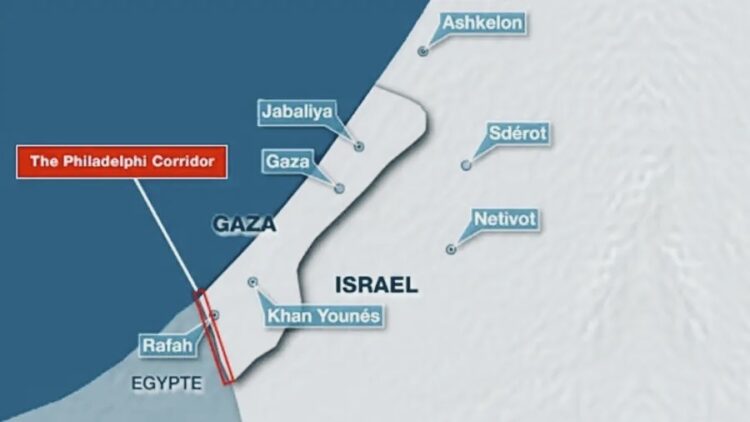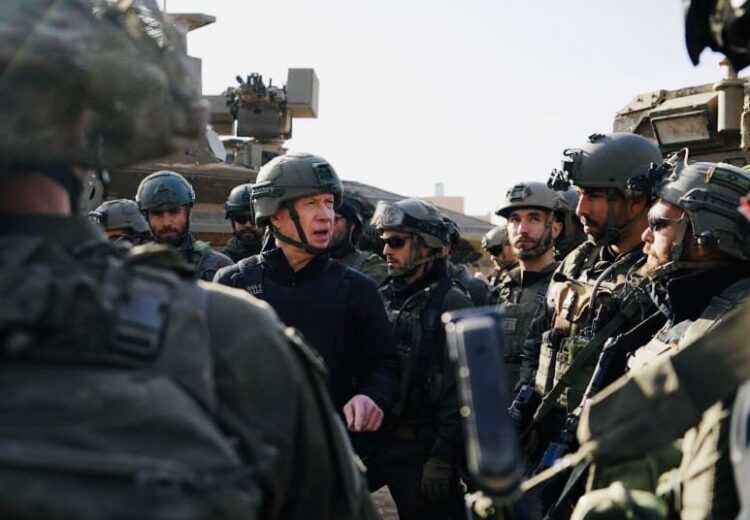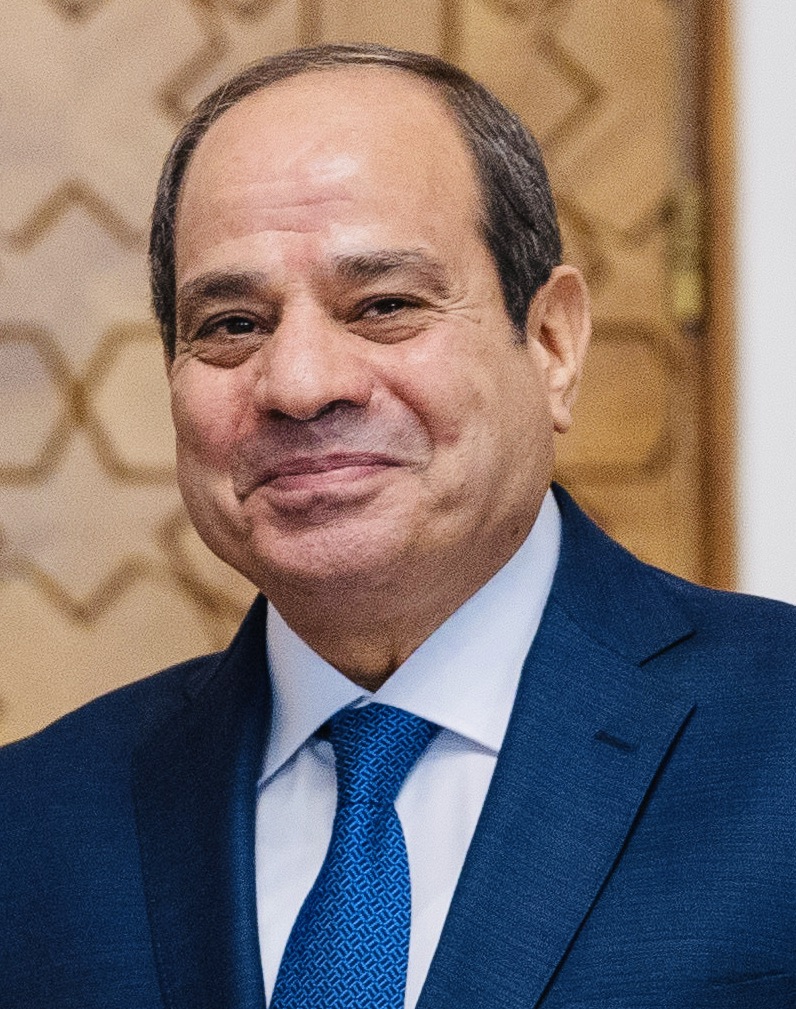As the fourth month of the Israel-Hamas war fast approaches, the Israeli government is seriously considering the possibility of invading Rafah, the only city in the Gaza Strip that Israel’s ground forces have yet to reach and occupy.
While the Israeli Air Force has bombed Hamas sites in Rafah, the most southerly city in Gaza, Israel has focused its military efforts until now on attacking Hamas forces in Gaza City and its suburbs, Palestinian refugee camps in the center, and Khan Younis in the south.

Rafah, which lies adjacent to Gaza’s border with Egypt and serves as a gateway for humanitarian aid earmarked for Palestinians, is the last remaining Hamas stronghold still fully controlled by Hamas.
In recent weeks, as fighting has intensified, roughly half of Gaza’s 2.3 million Palestinians have crowded into and around Rafah, whose population was about 200,000 until recently.
Israel has set its sights on Rafah not only because it is bent on destroying Hamas’ military capabilities there.
Israel wants to take control of the Philadelphi Corridor, a narrow strip of land 100 meters in width and 14 kilometers in length running along Gaza’s border with Egypt, the first Arab country that officially recognized Israel.

Under Israel’s 1979 peace treaty with Egypt, this small buffer zone was demilitarized, with each side allowed to deploy a token number of troops or border guards inside it.
With its unilateral withdrawal from Gaza in 2005, Israel left the Philadelphi Corridor in the hands of Egypt and the Palestinian Authority, which was created after the 1993 Oslo peace agreement between Israel and the Palestine Liberation Organization.
In 2005, Israel and Egypt signed the Philadelphi agreement, which permitted the Egyptians to station 750 soldiers in and around this buffer zone. A year later, Hamas soundly defeated Fatah in Gaza’s legislative election. In 2007, Hamas staged a coup, ousting the Palestinian Authority from Gaza.
Due to Israel’s and Egypt’s joint blockade of Gaza after 2007, Hamas built an array of tunnels under the Philadelphi Corridor to smuggle weapons, commercial and household goods and construction materials into the congested coastal strip.
Starting in 2013, Egypt began destroying hundreds of Hamas tunnels, some of which were used by the Islamic State organization to funnel arms into the Sinai Peninsula, from which Israel gradually pulled out in the 1980s.
After the eruption of Israel’s war with Hamas, Egypt offered to increase the size of its border force along the Philadelphi Corridor, but Israel declined.
This past December, Israel informed Egypt of its desire to deploy forces along the Philadelphi Corridor so as to prevent Hamas from smuggling weapons into Gaza from the Sinai. This occurred after Prime Minister Benjamin Netanyahu said the Philadelphi Corridor “has to be in our hands.”
Egyptian President Abdel Fattah el-Sisi rejected Netanyahu’s request and dismissed Israeli accusation that arms are still being smuggled into Gaza via the Sinai.
Israeli Defence Minister Yoav Gallant believes there are a few such tunnels beneath the Philadelphi Corridor. Still others in the Israeli government think there are still about ten active tunnels, some of which belong to criminal gangs.

Beyond the issue of the tunnels Sisi fears that an Israeli offensive in Rafah would impel tens or hundreds of thousands of Gazans to stream into the Sinai. He will not cooperate with any Israeli effort to depopulate Gaza at its expense.
This is not an idle fear. Fifteen years ago, when Egypt was ruled by Hosni Mubarak, thousands of Gazans broke through the Egyptian border and decamped in Sinai.
Israel’s view of the Philadelphi Corridor has so angered Sisi that he reportedly refused to take a phone call from Netanyahu last month.
More seriously, Egyptian officials have warned that Israeli military control of the Philadelphi Corridor would be a violation of the 1979 peace treaty and could well damage Egypt’s relationship with Israel, which is focused on intelligence matters and trade.
In the face of Egypt’s stern rebuff to an Israeli military presence along the Philadelphi Corridor, Netanyahu recently softened his position, saying that Israel can resort to “several options” to ensure that it is not misused by Hamas.
Nonetheless, Gallant has indicated that Israel has every intention of moving into Rafah. On February 2, he said, “We are completing the mission in Khan Younis and we will reach Rafah as well, and eliminate every terrorist there who threatens to harm us.”
Gallant’s comment is in line with Netanyahu’s insistence that Israel will continue the war in Gaza until it achieves “complete victory,” demilitarizes Gaza, and removes Hamas as Gaza’s governing authority.
According to the most recent reports, Israel has conveyed assurances to Egypt that a military operation in Rafah will not cause the mass migration of Palestinians into Egyptian territory.
Late last month, the director of the Shin Bet security agency, Ronen Bar, apparently delivered this message when he met Abbas Kamel, the head of Egypt’s General Intelligence Directorate, in Cairo.

At the end of the day, the dispute over Rafah and the Philadelphi Corridor leaves Israel on the horns of a dilemma.
If Netanyahu abides by Egypt’s wish and refrains from invading Rafah, Israel will fall short of its objective of crushing Hamas and removing it from power.
But if Israel storms into Rafah and reoccupies its side of the Philadelphi Corridor, it may well undermine its peace treaty with Egypt, a cornerstone of stability in the often volatile Middle East.
In the days and weeks ahead, Israel and Egypt will discuss this vexing problem in coordination with the United States in an attempt to resolve it.
